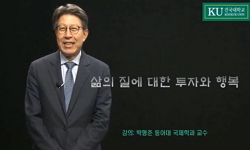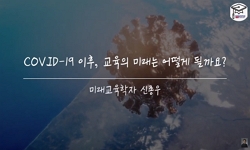The rapid spread of COVID-19 not only created a global public health crisis, but also affected almost every aspect of our lives. After investigating the fundamental impact of the COVID-19 outbreak on housing needs, this study envisions what multifamil...
http://chineseinput.net/에서 pinyin(병음)방식으로 중국어를 변환할 수 있습니다.
변환된 중국어를 복사하여 사용하시면 됩니다.
- 中文 을 입력하시려면 zhongwen을 입력하시고 space를누르시면됩니다.
- 北京 을 입력하시려면 beijing을 입력하시고 space를 누르시면 됩니다.


팬데믹 이후 공동주택의 건축계획적 접근 전략 연구 = The Architectural Planning Strategies for Multifamily Housing in a Post-Pandemic World
한글로보기https://www.riss.kr/link?id=A108107608
- 저자
- 발행기관
- 학술지명
- 권호사항
-
발행연도
2022
-
작성언어
Korean
-
주제어
코로나바이러스감영증-19 ; 팬데믹 ; 공동주택 ; 감염병 ; 건조환경 ; 삶의 질 ; 건강한 건축 ; COVID-19 ; Pandemic ; Multifamily Housing ; Infectious Disease ; Built Environments ; Quality of Life ; Healthy Building
-
등재정보
KCI우수등재,SCOPUS
-
자료형태
학술저널
- 발행기관 URL
-
수록면
73-83(11쪽)
-
KCI 피인용횟수
0
- DOI식별코드
- 제공처
- 소장기관
-
0
상세조회 -
0
다운로드
부가정보
다국어 초록 (Multilingual Abstract)
The rapid spread of COVID-19 not only created a global public health crisis, but also affected almost every aspect of our lives. After investigating the fundamental impact of the COVID-19 outbreak on housing needs, this study envisions what multifamily housing will look like in a post-pandemic world. Through the lessons learned during the COVID-19 pandemic, the design of residential architecture should incorporate preventive and mitigating measures to cope with any future epidemics. After factoring this new reality, this study aims to develop architectural planning strategies for multifamily housing, particularly mid to high-rise apartment housing as a predominant housing typology in Korea. An in-depth multi-disciplinary literature review was carried out to examine previous outbreaks and their impacts, assess the transmission of viruses in built environments, and observe the emerging lifestyles that resulted in the new approach of living, working, and interacting. Comparative analyses of existing guidelines for multifamily housing in response to COVID-19 were also conducted to develop a conceptual framework of architectural planning more suitable for multifamily housing in Korea. As a result of this study, a set of architectural strategies that accommodated new lifestyles while promoting quality of life through an occupant’s health and well-being were established. This strategy set is intended to provide a foundation for further research to generate more detailed design considerations for future residential developments.
국문 초록 (Abstract)
COVID-19 팬데믹은 전 세계적 공중보건의 위기를 야기했을 뿐만 아니라 우리 삶의 모든 영역과 층위에 전례 없는 영향을 주었다. 팬데믹의 장기화가 우리 사회와 주거욕구에 끼친 근본적인 영...
COVID-19 팬데믹은 전 세계적 공중보건의 위기를 야기했을 뿐만 아니라 우리 삶의 모든 영역과 층위에 전례 없는 영향을 주었다. 팬데믹의 장기화가 우리 사회와 주거욕구에 끼친 근본적인 영향과 이에 따른 변화에 주목하며, 본 연구는 팬데믹 이후 공동주택의 모습을 예측해 보고자 한다. COVID-19 팬데믹의 대응 과정은 인류를 위협하는 대규모 감염병의 유행은 언제든 다시 반복될 수 있다는 감염병 재난의 상시화에 대한 인식을 확산시켰고, 주거공간에서 감염병의 확산을 예방할 수 있는 대책의 수립을 촉구하게 되었다. 이에 본 연구는 COVID-19의 교훈을 바탕으로 감염병 재난에 대응할 수 있는 팬데믹 이후 공동주택 계획의 기본 방향과 공동주택의 각 영역에 적용할 수 있는 건축계획적 전략의 수립을 그 목적으로 한다. 이를 위해 역사 속의 주요 감염병과 인류의 대응, 질병과 건축, COVID-19 등과 같은 호흡기성 바이러스가 건조환경을 매개로 전파되는 경로 및 방식, 팬데믹이 추동한 사회변화와 새로운 삶의 방식 등에 대한 다학제적 문헌 고찰이 수행되었다. 또한 미국에서 발표된 공동주택 분야 COVID-19 대응 지침들을 비교하여 각 특징들을 분석하였으며 이와 함께 우리나라 공동주택 상황에의 적용가능성을 검토하였다. 연구의 결과로 감염병 대응 역량과 함께 새로운 라이프스타일의 수용 및 거주자의 건강과 웰빙을 통한 삶의 질 향상을 미래 공동주택 계획의 기본 방향으로 설정하였고, 이를 개념적 틀로 하여 공동주택의 각 영역에 대한 건축계획적 전략을 도출하였다. 이러한 전략 항목들은 또한 후속 연구를 통해 미래 공동주택을 위한 보다 구체적이고 실무적인 설계기준 및 디자인 가이드라인 수립의 토대가 될 것이다.
참고문헌 (Reference)
1 남성우 ; 조상규, "코로나시대에 대응하는 옥외공간으로서 국내외 발코니 비교 연구" 대한건축학회 37 (37): 121-130, 2021
2 김성일, "코로나19 팬데믹 시기의 주거 욕구별 주거생활 변화 연구" 인문사회 21 12 (12): 1151-1164, 2021
3 Kaplan, S., "The restorative benefits of nature : toward an integrative framework" 15 (15): 169-182, 1995
4 Chang, V., "The post-pandemic style"
5 The American Institute of Architects, "Strategies for Safer Multifamily Housing"
6 Chin, A. W., "Stability of SARS-CoV-2 in different environmental conditions" 1 (1): e10-, 2020
7 Spennemann, D., "Residential architecture in a post-pandemic world: Implications of COVID-19 for new construction and for adapting heritage buildings" 16 (16): 199-215, 2021
8 Gensler Research Institute, "Reconnect: Design Strategies for a Post-COVID World"
9 International WELL Building Institute, "Prevention and Preparedness, Resilience and Recovery: An IWBI Special Report"
10 Prakash Mallappa Munnoli, "Post-COVID-19 precautions based on lessons learned from past pandemics: a review" Springer Science and Business Media LLC 30 (30): 973-981, 2020
1 남성우 ; 조상규, "코로나시대에 대응하는 옥외공간으로서 국내외 발코니 비교 연구" 대한건축학회 37 (37): 121-130, 2021
2 김성일, "코로나19 팬데믹 시기의 주거 욕구별 주거생활 변화 연구" 인문사회 21 12 (12): 1151-1164, 2021
3 Kaplan, S., "The restorative benefits of nature : toward an integrative framework" 15 (15): 169-182, 1995
4 Chang, V., "The post-pandemic style"
5 The American Institute of Architects, "Strategies for Safer Multifamily Housing"
6 Chin, A. W., "Stability of SARS-CoV-2 in different environmental conditions" 1 (1): e10-, 2020
7 Spennemann, D., "Residential architecture in a post-pandemic world: Implications of COVID-19 for new construction and for adapting heritage buildings" 16 (16): 199-215, 2021
8 Gensler Research Institute, "Reconnect: Design Strategies for a Post-COVID World"
9 International WELL Building Institute, "Prevention and Preparedness, Resilience and Recovery: An IWBI Special Report"
10 Prakash Mallappa Munnoli, "Post-COVID-19 precautions based on lessons learned from past pandemics: a review" Springer Science and Business Media LLC 30 (30): 973-981, 2020
11 Chayka, K., "How the coronavirus will reshape architecture" The New Yorker
12 Peters, T., "How our homes impact our health: using a COVID-19 informed approach to examine urban apartment housing" 15 (15): 10-27, 2021
13 Dingel, J. I., "How many jobs can be done at home?" 189 : 104235-, 2020
14 Tokazhanov G., "How is COVID-19 experience transforming sustainability requirements of residential buildings? A review" 12 (12): 8732-, 2020
15 Centers for Disease Control and Prevention, "How COVID-19 Spreads"
16 Centers for Disease Control and Prevention, "Co nsiderations for Owners and Operators of Multifamily Ho using Including Populations at Increased Risk for Compli cations from COVID-19"
17 National Multifamily Housing Council, "Characteri stics of Apartment Stock"
18 Megahed, N. A., "Antivirus-built environment : Lessons learned from Covid-19pandemic" 61 : 102350-, 2020
19 Van Doremalen, N., "Aerosol and surface stability of SARS-CoV-2 as compared with SARS-CoV-1" 382 (382): 1564-1567, 2020
20 Leslie Dietz, "2019 Novel Coronavirus (COVID-19) Pandemic: Built Environment Considerations To Reduce Transmission" American Society for Microbiology 5 (5): e00245-, 2020
동일학술지(권/호) 다른 논문
-
- 대한건축학회
- 이상현
- 2022
- KCI우수등재,SCOPUS
-
- 대한건축학회
- 이강희
- 2022
- KCI우수등재,SCOPUS
-
건축물 주소 기반의 공공개방데이터 활용성 제고를 위한 주소오류유형 분석
- 대한건축학회
- 이종원
- 2022
- KCI우수등재,SCOPUS
-
BF인증제도에 대한 유니버설디자인 측면에서의 평가와 개선방안
- 대한건축학회
- 오현서
- 2022
- KCI우수등재,SCOPUS
분석정보
인용정보 인용지수 설명보기
학술지 이력
| 연월일 | 이력구분 | 이력상세 | 등재구분 |
|---|---|---|---|
| 2022 | 평가예정 | 계속평가 신청대상 (등재유지) | |
| 2017-01-01 | 평가 | 우수등재학술지 선정 (계속평가) | |
| 2013-01-01 | 평가 | 등재학술지 유지 (등재유지) |  |
| 2011-03-25 | 학술지명변경 | 한글명 : 대한건축학회논문집 -> 대한건축학회논문집 계획계외국어명 : Journal of the Architectural Institute of Korea -> Journal of the Architectural Institute of Korea Planning & Design |  |
| 2010-01-01 | 평가 | 등재학술지 유지 (등재유지) |  |
| 2008-01-01 | 평가 | 등재학술지 유지 (등재유지) |  |
| 2006-08-02 | 학술지명변경 | 외국어명 : Journal of the Architectural Institute of Korea, Structure&Construction -> Journal of the Architectural Institute of Korea |  |
| 2006-01-01 | 평가 | 등재학술지 유지 (등재유지) |  |
| 2005-10-14 | 학술지명변경 | 한글명 : 대한건축학회논문집 구조계 -> 대한건축학회논문집 |  |
| 2004-01-01 | 평가 | 등재학술지 유지 (등재유지) |  |
| 2001-07-01 | 평가 | 등재학술지 선정 (등재후보2차) |  |
| 1999-01-01 | 평가 | 등재후보학술지 선정 (신규평가) |  |
학술지 인용정보
| 기준연도 | WOS-KCI 통합IF(2년) | KCIF(2년) | KCIF(3년) |
|---|---|---|---|
| 2016 | 0.38 | 0.38 | 0.38 |
| KCIF(4년) | KCIF(5년) | 중심성지수(3년) | 즉시성지수 |
| 0.41 | 0.4 | 0.742 | 0.11 |




 DBpia
DBpia







